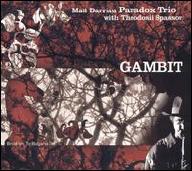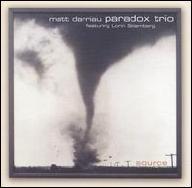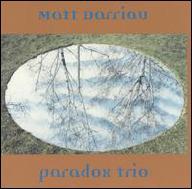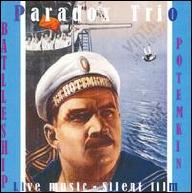Paradox Trio (actually a quartet), formed by Darriau after he moved from Boston to New York in 1991, was a particularly influential group on the New York downtown scene of the '90s, and one of the first bands to give traditional ethnic music a distinctly downtown flavor. Certainly, Darriau was in the first wave of artists -- which also included trumpeter Dave Douglas, reedman Chris Speed, and guitarist Brad Shepik (a Paradox Trio member) -- to introduce Eastern European and Middle Eastern melodies, scales, and rhythms into the downtown mix. The third Paradox Trio CD on the Knitting Factory label, Source, aptly summarized the multicultural influences defining much of Darriau's recorded output; the 1999 album found the group exploring music of the late-period Ottoman Empire, where the East and West met and co-mingled, forever influencing art and culture throughout most of the 20th century. Source and the band's other Knitting Factory discs have unfortunately gone out of print, but Paradox was still going strong as of the mid-2000s, with club and festival appearances and the release of 2005's Gambit on the Enja label.
In addition to his work with Paradox Trio and Orange Then Blue, Darriau has performed in a number of other adventurous contexts, including the widely popular Klezmatics, who imbue Yiddish roots music with a contemporary flavor (and notably appear on violin virtuoso Itzhak Perlman's In the Fiddler's House CD); the Celtic-influenced Whirligig; the polystylistic (of course) les Misérables Brass Band; and Frank London's Klezmer Brass Allstars. ~ Dave Lynch, Rovi


















